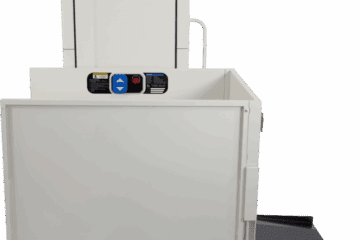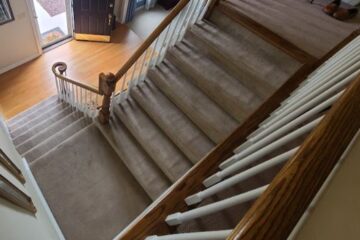When a loved one suddenly loses the ability to climb stairs, accessing essential areas like the second-floor bedroom or bathroom becomes an urgent challenge. Because we’re often contacted by Lehigh Valley folks in this situation, we’ve seen firsthand how this unexpected shift can disrupt daily life, forcing families to weigh their options quickly. Three primary solutions emerge: relocating to a more suitable home, renovating the current space, or installing a power stair lift. Each path offers distinct pros and cons, but for many, the stair lift stands out as the most practical, cost-effective, and stress-free choice, restoring full access to the home with minimal upheaval.
The first option—moving to a single-story dwelling or a more mobility-friendly residence—seems like a comprehensive fix. However, it comes with a steep price tag, averaging around $40,000 when factoring in real estate costs, moving expenses, and potential renovations. Beyond the financial burden, the process could take three to six months, involving house hunting, packing, and adjusting to a new environment. For a loved one already grappling with mobility issues, this upheaval adds significant stress. Leaving a familiar home filled with memories can also take an emotional toll, making relocation a daunting prospect despite its long-term benefits.
Option two involves adapting the existing home by installing a new bathroom on the first floor. This solution keeps the family in place but isn’t without drawbacks. Costs range from $7,000 to $30,000, depending on plumbing, structural changes, and finishes. Construction typically spans one to three months, filling the home with dust, noise, and disruption. For someone with health or mobility challenges, living amid a renovation can be overwhelming, if not unsafe. While this option addresses bathing needs, it doesn’t solve access to upstairs bedrooms or other spaces, limiting its scope as a full resolution.
The third option—installing a power stair lift—offers a compelling alternative. With prices starting at around $3,400, it’s far more affordable than moving or renovating. Better still, installation can be completed swiftly, often within a couple of days. A stair lift attaches to the existing staircase, requiring no structural overhaul, and provides a smooth, safe ride between floors. Equipped with features like seat belts, obstruction sensors, and battery backups, it ensures reliability and security. This solution restores access to the entire home—bedrooms, bathrooms, and beyond—without the chaos of construction or the heartbreak of relocation.
Beyond logistics, there’s another factor that is often overlooked: the emotional value of staying in one’s home. Familiar surroundings offer comfort and stability, especially during a health crisis. A stair lift delivers peace of mind, empowering a loved one to navigate their space independently or with minimal assistance. Unlike temporary fixes, it’s a long-term investment in safety and autonomy.
Comparing the options, the stair lift shines for its speed, affordability, and minimal disruption. Relocation’s $40,000 price tag and months-long timeline pale against the $3,400 stair lift installed in just a few short days. Renovation, while cheaper than moving, still involves weeks of mess and incomplete access. For families facing this sudden challenge, the choice is clear: a power stair lift offers invaluable freedom, keeping the home whole and the heart at ease.
Power Stair Lifts is located in the Lehigh Valley and offers free in-home estimates. Please contact us with any questions at powerstairlifts.com/contact-us.


